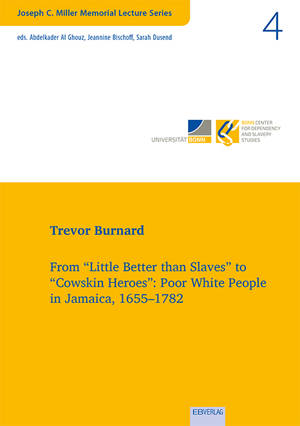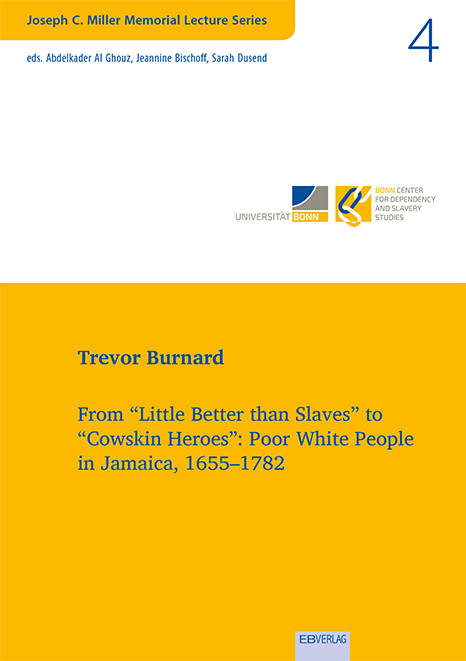
- Afhalen na 1 uur in een winkel met voorraad
- Gratis thuislevering in België vanaf € 30
- Ruim aanbod met 7 miljoen producten
- Afhalen na 1 uur in een winkel met voorraad
- Gratis thuislevering in België vanaf € 30
- Ruim aanbod met 7 miljoen producten
Zoeken
From "Little Better than Slaves" to "Cowskin Heroes"
Poor White People in Jamaica, 1655-1782
Trevor Burnard
€ 11,95
+ 23 punten
Omschrijving
The principal axes along which seventeenth and eighteenth-century Jamaica divided were those of colour and of freedom. By the late eighteenth century, it became axiomatic that all Protestant whites were free and that all blacks were either enslaved or marked out for discriminatory action as a result of not being white. But this situation was new: before the Seven Years' War and the trauma of Tacky's Revolt in 1760, a considerable proportion of the white population was unfree, including many indentured servants and, before 1718, convicts. This article estimates the numbers of unfree whites before the 1760s, allows as far as sources allow some voice to these poor whites, and examines their status as unfree people in a society increasingly oriented around principles of white supremacy. Over time, the political and economic position of ordinary whites dramatically improved as the principles of white racial superiority took hold in the last quarter of the eighteenth century. It meant that the people somewhat derisively called cowskin heroes' due to their penchant for lording it over enslaved people were in the ascendant as the principles of white racial superiority took hold as the foundations of social, economic and political order in the island.
Specificaties
Betrokkenen
- Auteur(s):
- Uitgeverij:
Inhoud
- Aantal bladzijden:
- 33
- Taal:
- Engels
- Reeks:
- Reeksnummer:
- nr. 4
Eigenschappen
- Productcode (EAN):
- 9783868933635
- Uitvoering:
- Boek
- Afmetingen:
- 210 mm x 148 mm

Alleen bij Standaard Boekhandel
+ 23 punten op je klantenkaart van Standaard Boekhandel
Beoordelingen
We publiceren alleen reviews die voldoen aan de voorwaarden voor reviews. Bekijk onze voorwaarden voor reviews.











